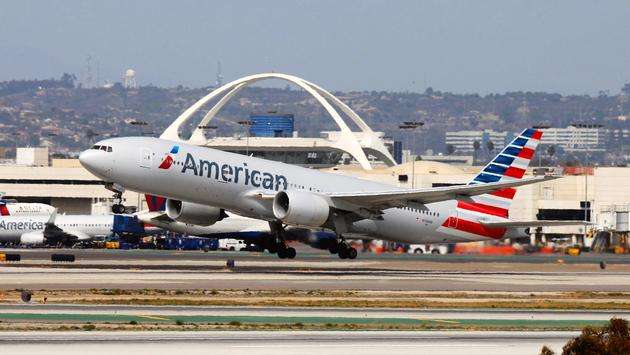American Airlines today indicated that it’s seeing a substantial slowdown in demand heading into the end-of-year holidays, due to this season’s massive surge of new COVID-19 infections. While American started 2020’s final quarter out strong, the deceleration of rebounding demand began before Thanksgiving and has continued into December, Bloomberg reported.

The source noted that this represents a shift from the trends seen leading up to Thanksgiving, in which air travel booking demand appeared to be independent of COVID-19 case volumes. And, while air travel activity did spike during the Thanksgiving holiday period—leading to the highest number of passengers through U.S. airports that we’ve seen since the pandemic began—that traffic only reached 41 percent of last year’s levels.
Delta Air Lines likewise warned yesterday in a securities filing that demand has fallen, with fewer bookings and more cancellations coming amid a record-setting swell of coronavirus hospitalizations. Delta said its cash losses are now looking to be worse than expected this quarter, with up to $14 million cash burn daily—up from an earlier outlook of $12 million. The carrier said it still expects fourth-quarter revenue to come in at 30 percent of last year’s numbers.
This weakened outlook is also shared by major U.S. competitor Southwest Airlines, which reported seeing a slowdown in bookings even before Thanksgiving. On November 12, CEO Gary Kelly said , "COVID cases are on the rise across the country and that is very worrisome. We've seen some slowing of the improving booking trends that we've been experiencing the past few months and, while we expected the election to impact these trends, as is usually the case, it's unclear whether the softness in bookings we've seen in these past few weeks is directly related to the recent rise in COVID cases."
Moreover, American Airlines said in today’s regulatory filing that it expects its own daily cash burn during the fourth quarter to fall toward the higher end of an earlier forecast of between $25 million and $30 million. It also said that it expects to close out the year with over $14 billion in liquidity.
It remains to be seen whether the arrival of an approved COVID-19 vaccine will boost traveler confidence and strengthen health and safety protocols enough to put airlines back on a course toward normalcy. Otherwise, the possible passing of a second federal stimulus package this winter, which would include a $17-billion provision to keep air carriers afloat, may also offer deliverance.
Leave a Comment